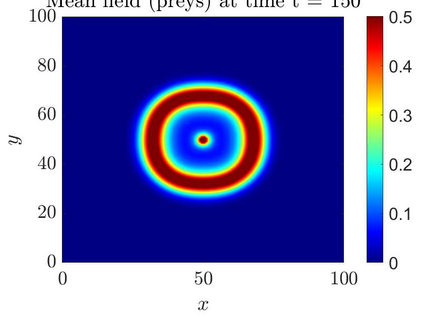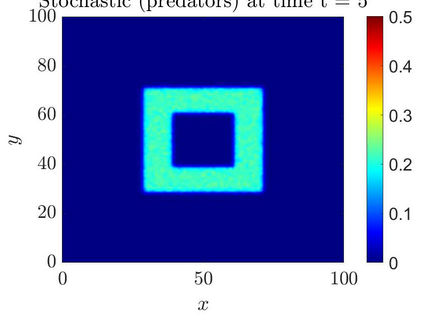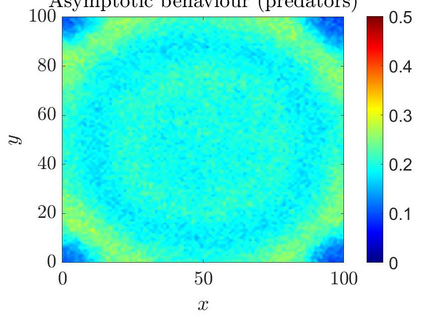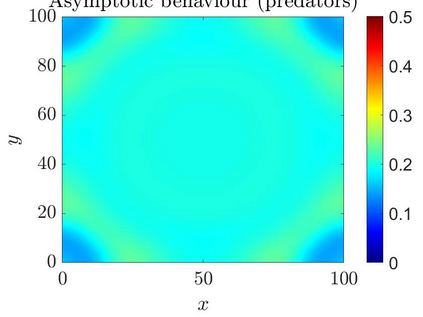Experiments in predator-prey systems show the emergence of long-term cycles. Deterministic model typically fails in capturing these behaviors, which emerge from the microscopic interplay of individual based dynamics and stochastic effects. However, simulating stochastic individual based models can be extremely demanding, especially when the sample size is large. Hence we propose an alternative simulation approach, whose computation cost is lower than the one of the classic stochastic algorithms. First, we describe how starting from the individual description of predator-prey dynamics, it is possible to derive the mean-field equations for the homogeneous and heterogeneous space cases. Then, we see that the new approach is able to preserve the order and that it converges to the mean-field solutions as the sample size increases. We show how to simulate the dynamics with the new approach, performing different numerical experiments in order to test its efficiency. Finally, we analyze the different nature of oscillations between mean-field and stochastic simulations underling how the new algorithm can be useful also to study the collective behaviours at the population level.
翻译:捕食者猎食系统的实验显示了长期周期的出现。 确定性模型通常无法捕捉到这些由个体基动态和随机效应的微观相互作用所产生的行为。 然而, 模拟随机个体模型可能要求极高, 特别是当样本大小很大时。 因此, 我们提议了一种替代模拟方法, 其计算成本低于经典的随机算法。 首先, 我们描述从捕食者捕食性动态的个别描述开始, 如何为同质和异质空间案例得出平均场方程式。 然后, 我们发现, 新的方法能够维护秩序, 随着样本大小的增加, 它会与平均值解决方案汇合。 我们展示了如何用新方法模拟这些动态, 进行不同的数字实验, 以测试其效率。 最后, 我们分析了平均场和随机模拟之间的不同性质。 我们分析了介于中, 新算法如何也能有助于研究人口层面的集体行为 。














